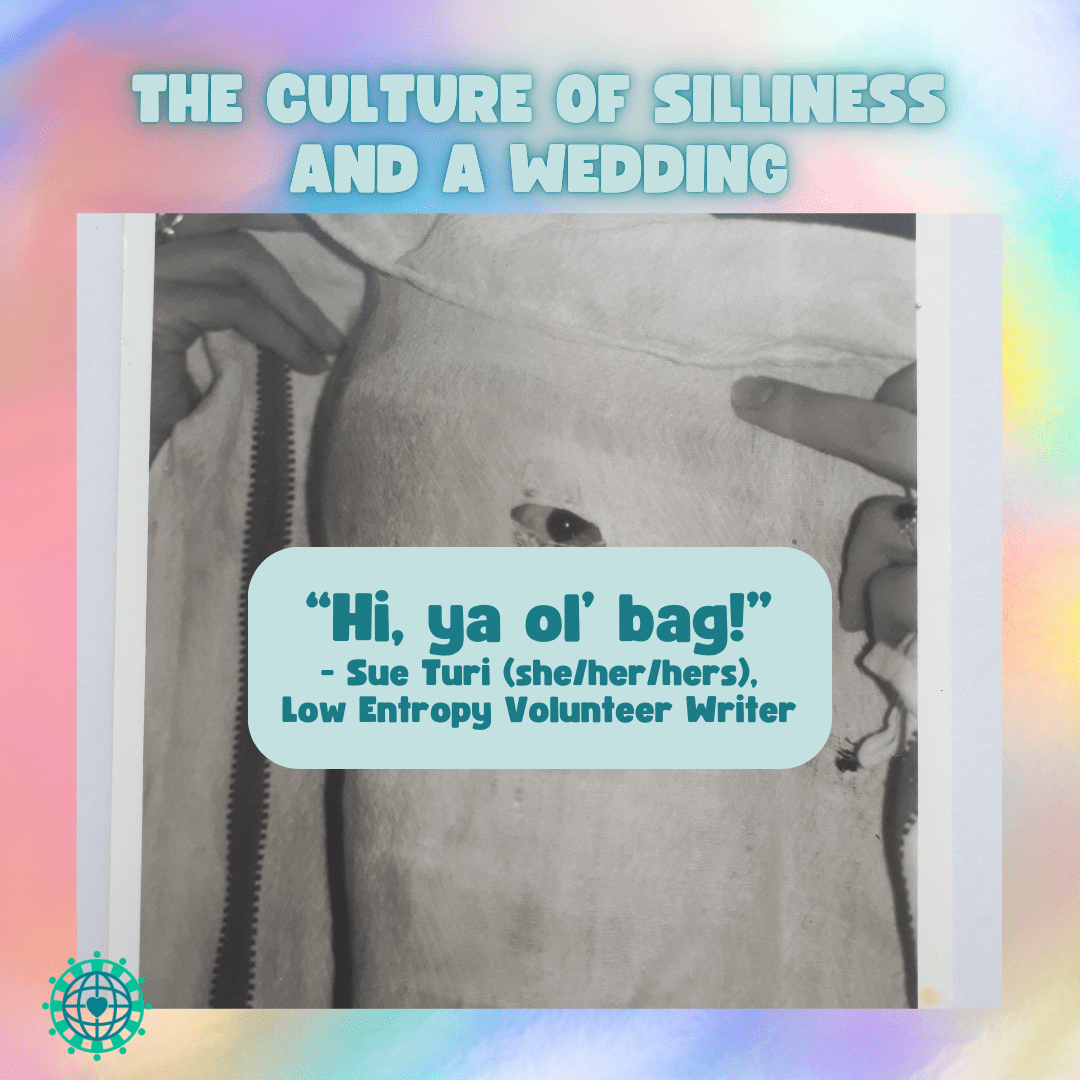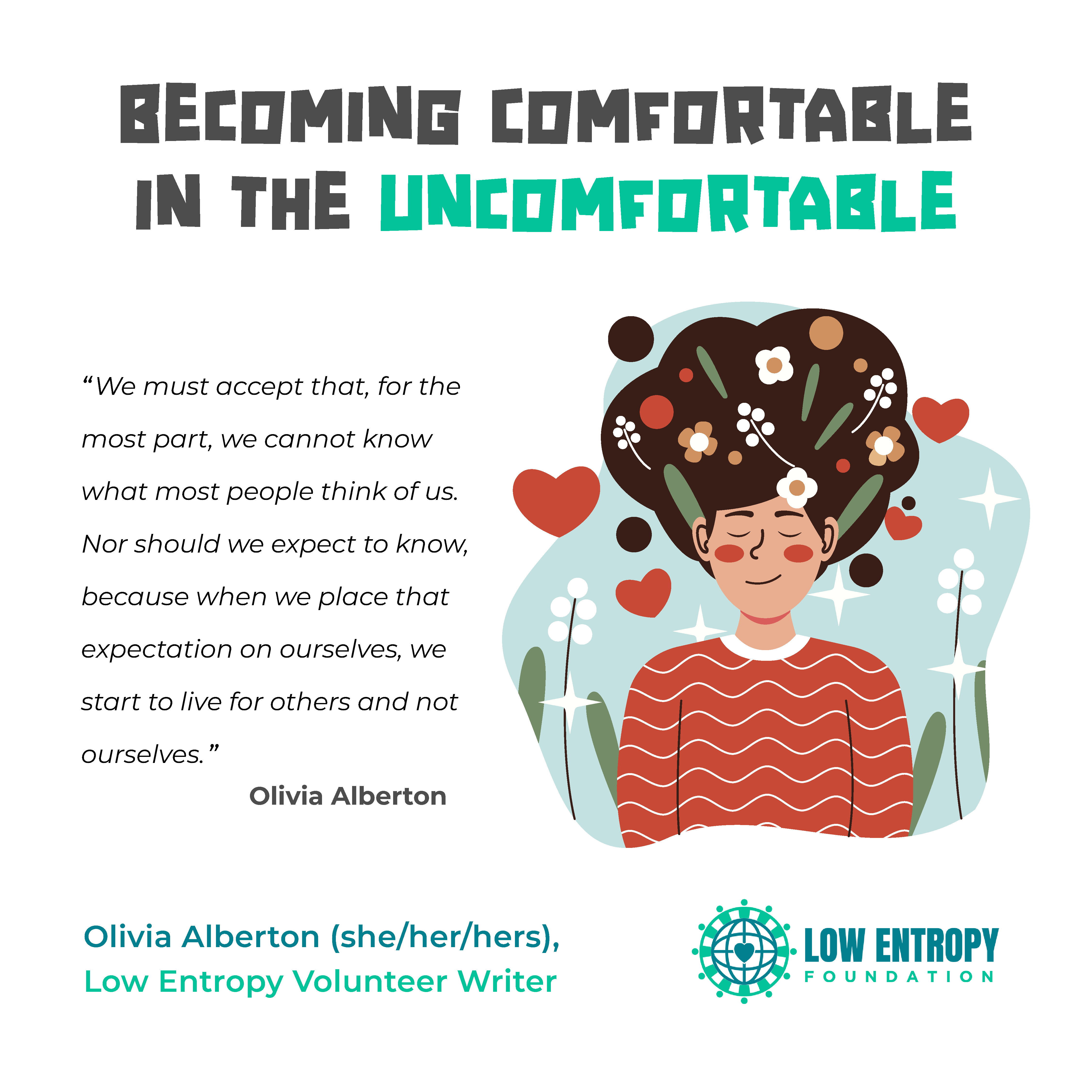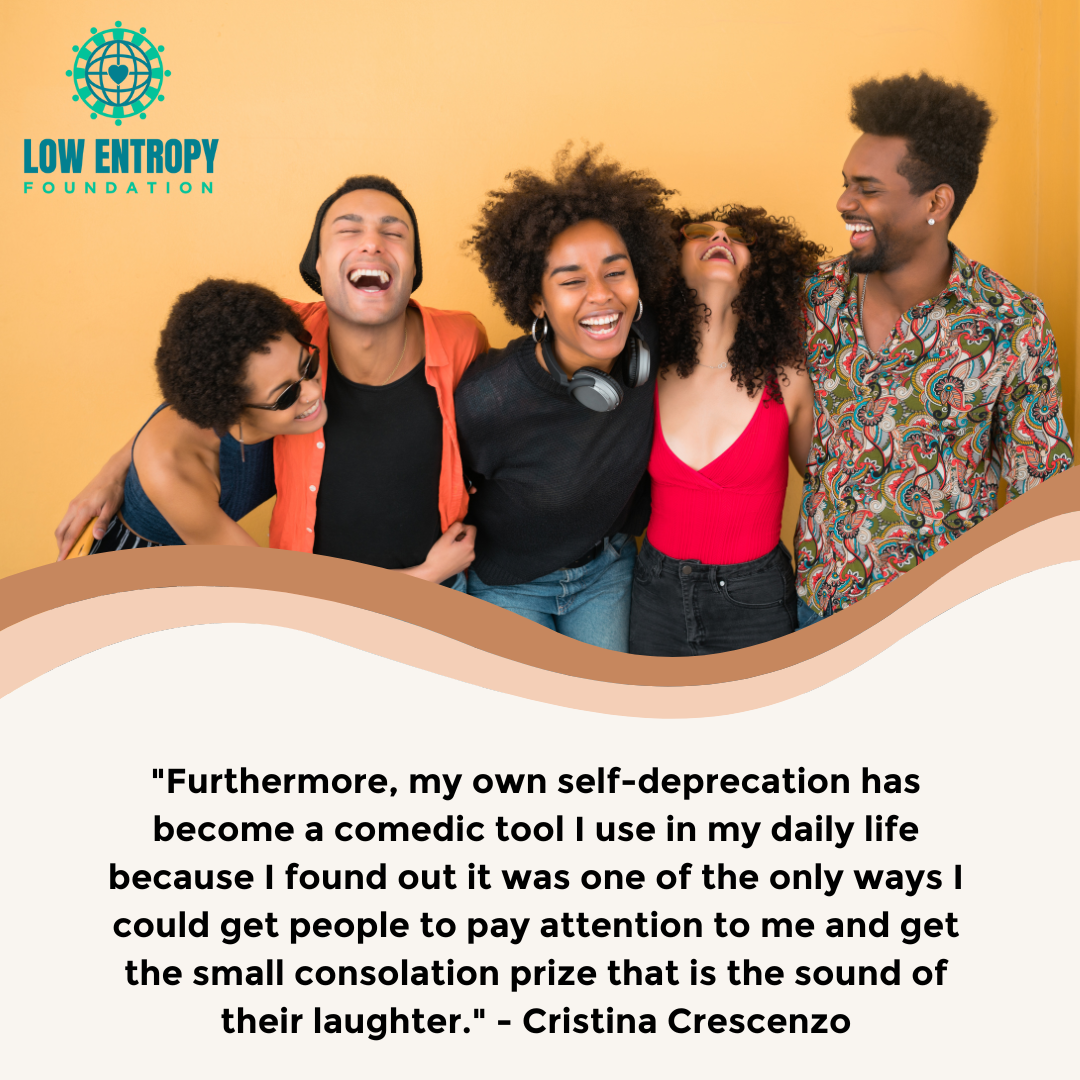The Culture of Silliness and a Wedding
April 19, 2025

Sue Turi (she/her/hers), Low Entropy Volunteer Writer
I always thought silliness was universally appreciated. Mr. Bean, the Pink Panther movies . . . but a wedding came to define for me the limits of this “universal” acceptance of silliness.
It’s the eve of my wedding at the home of my in-laws, and my family is about to be introduced to them for the first time. My invited family is small: my sister and mother. I’m nervous, as my mother and sister are rowdy when they get together, but I feel they’ll be on their best behaviour for this event. A hiccup though: they speak and understand minimal French, and are prone to silliness.
My family is from the UK and my soon-to-be husband is French. But that’s not all. My mother was raised in the theatre and my sister is a comic filmmaker. In contrast, my father-in-law is a two-star general nearing retirement and my mother-in-law is a homemaker.
A modest contingent of wedding guests have arrived: aunts, uncles, and cousins who are teachers, police officers and engineers from different regions of France. A few possess minimal English. I’m not sure they understand English swear words and slapstick, but we’re about to test it.
My sister arrived from the station five minutes ago. I can hear her voice outside as she curses loudly. Her suitcases are heavy. My mother, who was in casual conversation with me, stops to peer out the window and shout greetings to her eldest daughter, who yells back,
“Hi, ya ol’ bag!”
This is normal between my mother and sister. In the UK, calling someone an “old bag” can be in jest or an insult. It’s not clear where my family stands—somewhere in between maybe. They have what’s called self-deprecating humour. They laugh at themselves and mock each other mercilessly.
Introductions are made with the French family, then lunch is served.
My father-in-law, as a military man, likes to give toasts and formal speeches, especially around mealtimes. He takes his time, holding up his champagne glass, savouring every well-chosen word, and waits for his audience to react with laughter or applause. He smiles and makes what I assume to be a joke about how an expectant mother—referencing blushing me—should drink champagne every day to give her future baby curly hair. I laugh with everyone else, even though I don’t find the joke that funny, per se, just cute. But my sister lets out a loud sigh and rolls her eyes. My mother mumbles something under her breath.
I’m puzzled. Is it the joke? The language? Or cultural . . .
My father-in-law has keenly noticed that my family are not eager adherents to protocol or to faking approval of jokes. During lunch, my mother and sister engage in banter between themselves, then attempt a loud conversation with my brother-in-law across the table in broken French. I admire my sister’s courage in articulating every word laboriously, but it’s in a performative way. I can’t help but wonder if she’s trying to feel the French language or mock it. But it’s mildly funny to watch, because she doesn’t seem to care how it’s received.
My soon-to-be husband accidentally drops his silver-plated knife into his plate. The loud clatter prompts an angry glare and reprimand from his father, and all the guests go quiet. My sister lets out an “oh my god” sarcastically, but suppresses an eye roll. My mother is suddenly being too apologetic and refusing third helpings.
After lunch, a plan is hatched to give my family a walking tour of the local town, the main street and so on. My sister is enthusiastic about the idea. She gives my mother a very boisterous slap on the behind in front of everyone, then calls her a “silly ol’ fart” for forgetting where she left her handbag. My father-in-law is looking at me disapprovingly and I smile sheepishly. He understands more than I thought. It’s my family, I want to say. Formal events make them nervous. But I question whether I’m confusing their silliness for rudeness.
The night is long before my big day. There’s still a pre-event dinner to get through with more speeches, toasts and adults-only Gallic jokes. There’s still the liqueur hour after dinner with vintage cognac, and I haven’t reached the altar yet. My sister’s eyerolls have become sheer pain to suppress as her F-bombs increase. She drops one every time something unexpected happens, like a bread roll falling to the floor.
Some people have heard about the eruption of Krakatoa, the volcano which blew its head off in 1883.
Well, that is what happened near the end of dinner. My father-in-law literally blew up. He screamed uncontrollably for 15 minutes at my sister, who broke down in a tsunami of tears while my mother sat shell-shocked. Some guests came to console my sister, but most looked stunned, pretending to not know what had triggered him (this time).
But I found out.
Unsurprisingly, my sister had accidently sat on the sweater of my mother-in-law near dinner’s end and swore at it. She didn’t know whose sweater it was; it was black on a black chair and in the way. She swore at it like the buttered roll that had fallen earlier to the carpeted floor.
My father-in-law had exhausted his tolerance for “silliness,” and my bride’s bouquet was still getting adjustments at the florist.
In hindsight, our two families needed more than Mr. Bean to bridge our divides.
—
Sue Turi is a freelance painter, illustrator and writer, crafting stories from her empty nest located just outside of Montreal, near the Thousand Islands of the St. Lawrence River. She also enjoys cooking, writing poetry and being au contraire when needed.
GET INVOLVED
At Low Entropy, we believe changing the world starts with changing ourselves.
Founded in 2015, Low Entropy Facilitates conversations that encourage diversity and promote inclusivity.
We understand that life can be confusing at times. It can seem challenging and sometimes you may feel like no one really “gets you.” We offer an opportunity to connect with others who have the capacity to understand you.









